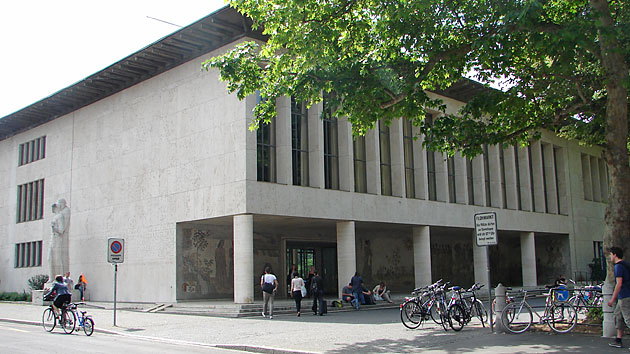The degree program website provides an overview of what you can study at the University of Basel at Bachelor and Master level.
Students are admitted to degree programs at all levels (bachelor's, master's and PhD) based on the rules defined in the Student Regulations, guidelines for admission and the specific study regulations. Additional information can be found here: www.unibas.ch/zulassung.
Admission to a course of studies at any of the three degree levels requires that you submit your application by the deadline.
For questions regarding the application and admissions process, please use this support form to contact the Office of Student Administration.
There are three steps to getting accepted on a course of studies:

